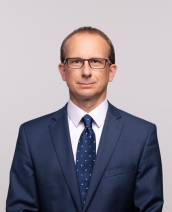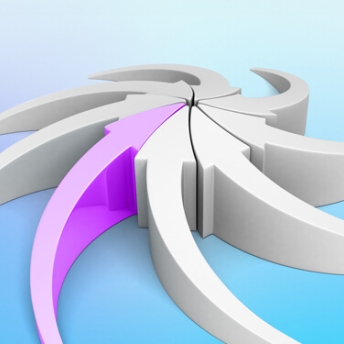Jiri Steif
Managing Partner

Education
Past Experience

Jiri brings over 25 years of consulting experience, out of which 13 years as a Partner in Kearney (formerly AT Kearney). During the last 9 years he was the Managing Partner for Czech Republic and Slovakia.
He has a strong focus on the Financial Services sector and significant experience in Energy, FMCG, PE, Health and Automotive. For many years he was also leading the CEE Financial Services practice and led the knowledge management of Kearney in the wider EMEA region. His key functional competence areas are Strategy, Transformation (including Digital), Post Merger Integration (PMI), Sales Force Effectiveness, Operational Effectiveness and Procurement. Jiri brings also international project experience in different geographies, mainly in Czechia, Slovakia, Hungary, Romania, Austria, Poland, former Yugoslavia, Netherlands, UK and USA.
Jiri holds an MBA from Rochester Institute of Technology, Dipl.Ing. from University of Economics in Prague and also studied at the Erasmus University in Rotterdam and at Oslo University.
After the recent opening of our new office in Poland, Jiri’s recruitment demonstrates again our strong commitment to reinforcing our market position and capabilities in the Eastern European Cluster.

Getting a grip on decarbonization with effective internal carbon pricing

Is steel scrap the new gold?

Understanding key customer-centricity trends in insurance

Post-merger integration success in insurance

Embedded payments: Convenience at a cost?

Jiri brings over 25 years of consulting experience, out of which 13 years as a Partner in Kearney (formerly AT Kearney). During the last 9 years he was the Managing Partner for Czech Republic and Slovakia.
He has a strong focus on the Financial Services sector and significant experience in Energy, FMCG, PE, Health and Automotive. For many years he was also leading the CEE Financial Services practice and led the knowledge management of Kearney in the wider EMEA region. His key functional competence areas are Strategy, Transformation (including Digital), Post Merger Integration (PMI), Sales Force Effectiveness, Operational Effectiveness and Procurement. Jiri brings also international project experience in different geographies, mainly in Czechia, Slovakia, Hungary, Romania, Austria, Poland, former Yugoslavia, Netherlands, UK and USA.
Jiri holds an MBA from Rochester Institute of Technology, Dipl.Ing. from University of Economics in Prague and also studied at the Erasmus University in Rotterdam and at Oslo University.
After the recent opening of our new office in Poland, Jiri’s recruitment demonstrates again our strong commitment to reinforcing our market position and capabilities in the Eastern European Cluster.

Getting a grip on decarbonization with effective internal carbon pricing

Is steel scrap the new gold?

Understanding key customer-centricity trends in insurance

Post-merger integration success in insurance

Embedded payments: Convenience at a cost?
More About Jiri
- Rochester Institute of TechnologyM.B.A
- University of Economics in PragueDipl.Ing. - International Business & Corporate Finance
- 25 years of experience in management consulting
